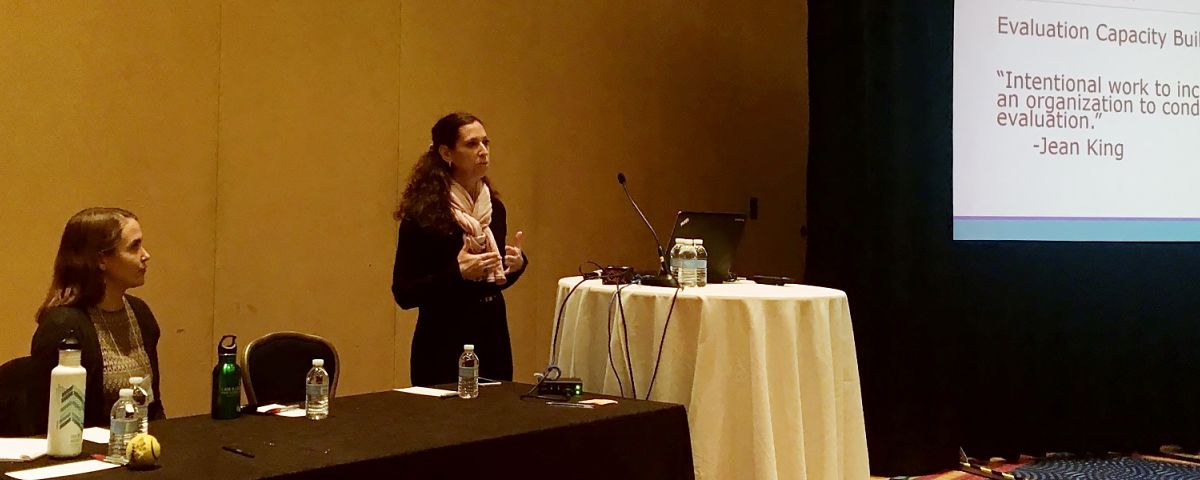
Several of us at IG are reflecting on a great week of learning and connecting at the American Evaluation Association’s annual conference in Washington, DC earlier this month. We attend every year to learn, and to share our lessons learned, with fellow evaluators. We had so much fun meeting and learning from fellow lifelong students of evaluation! We also noticed several themes emerge:
Evaluation = learning
With a conference theme of “From Learning to Action,” it’s no surprise that a lot of learning went on in DC when evaluators invaded. What stuck out to us was how learning can make evaluation more accessible. Focusing on evaluation to learn—about a program, target population, issue—not to evaluate, can make evaluation more approachable (thanks to DC-based Innovation Network for that framing). Evaluation capacity building, something we love at IG, can demystify evaluation while also equipping community members with the tools they need to increase impact.
That leads to another benefit of focusing on learning and capacity building—it makes evaluation less scary! In a session on capacity building, a speaker from Evaluation for Change spoke about creating a “culture of learning” to replace a “culture of fear.” This is important to us here at IG—in one of our presentations, we talked about creative ways we have used capacity building to increase the utilization and equity of evaluation.
We also learned the value of shared understanding around words we use across different fields. As social impact measurement becomes more and more a part of our work, this becomes more important. Social Value U.S. presented on the new “Impact Management Glossary.” Check it out to learn what different words can mean in different fields of practice. Fun fact: in some Spanish interpretations, “evaluation” first translated to “inquisition”—language matters!
Good evaluation takes time
Evaluators left AEA empowered to take the space and time needed for valid, culturally-responsive evaluation. A comment that stuck with us from Public Policy Associates’ session on a racial equity lens was that it is an evaluator’s role—and responsibility—to tell a client how long it will take to do an evaluation the right way. This time allows the evaluator to apply expertise to conduct data collection with traditionally marginalized groups, apply a racial equity lens, and connect with key informants in the community of focus. Sometimes this calls for deep conversations with clients, and as external evaluators, we bring the third-party perspective that can help move those conversations forward!
Evaluators have a social responsibility
On the topic of cultural responsiveness, many at AEA agreed that evaluators have a social responsibility. Former AEA President Kathy Newcomer urged the more than 4,000 evaluators in attendance (and 1,000 more tuning in online!) to hold themselves accountable to the people served by what they evaluate.
Melvin Hall of Northern Arizona University, who moderated the AEA dialogues on race and class, said this can mean exposing what is hidden to clients, and bringing race equity into consideration, even in the face of pushback.
We continue to reflect on what we learned at AEA, and how it applies to our practice. But we’re already looking forward to next year!
